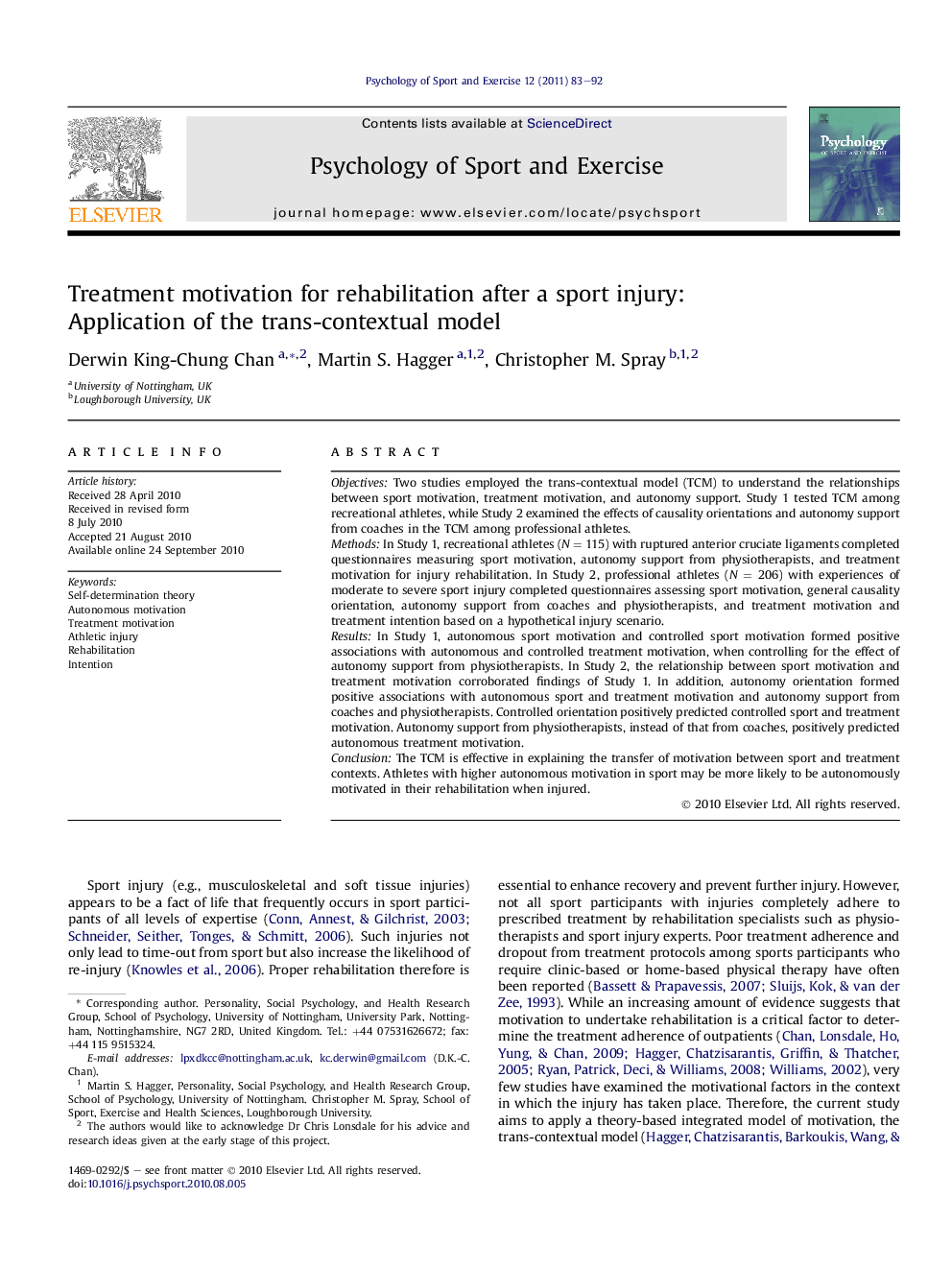| کد مقاله | کد نشریه | سال انتشار | مقاله انگلیسی | نسخه تمام متن |
|---|---|---|---|---|
| 894519 | 1472136 | 2011 | 10 صفحه PDF | دانلود رایگان |

ObjectivesTwo studies employed the trans-contextual model (TCM) to understand the relationships between sport motivation, treatment motivation, and autonomy support. Study 1 tested TCM among recreational athletes, while Study 2 examined the effects of causality orientations and autonomy support from coaches in the TCM among professional athletes.MethodsIn Study 1, recreational athletes (N = 115) with ruptured anterior cruciate ligaments completed questionnaires measuring sport motivation, autonomy support from physiotherapists, and treatment motivation for injury rehabilitation. In Study 2, professional athletes (N = 206) with experiences of moderate to severe sport injury completed questionnaires assessing sport motivation, general causality orientation, autonomy support from coaches and physiotherapists, and treatment motivation and treatment intention based on a hypothetical injury scenario.ResultsIn Study 1, autonomous sport motivation and controlled sport motivation formed positive associations with autonomous and controlled treatment motivation, when controlling for the effect of autonomy support from physiotherapists. In Study 2, the relationship between sport motivation and treatment motivation corroborated findings of Study 1. In addition, autonomy orientation formed positive associations with autonomous sport and treatment motivation and autonomy support from coaches and physiotherapists. Controlled orientation positively predicted controlled sport and treatment motivation. Autonomy support from physiotherapists, instead of that from coaches, positively predicted autonomous treatment motivation.ConclusionThe TCM is effective in explaining the transfer of motivation between sport and treatment contexts. Athletes with higher autonomous motivation in sport may be more likely to be autonomously motivated in their rehabilitation when injured.
Research highlights
► Autonomous sport motivation is positively related to autonomous treatment motivation.
► Autonomous treatment motivation is a positive predictor of treatment intention.
► Causality orientation influences athletes
► motivation and perceived autonomy support.
► The trans-contextual model may be applicable to the context of sport rehabilitation.
Journal: Psychology of Sport and Exercise - Volume 12, Issue 2, March 2011, Pages 83–92